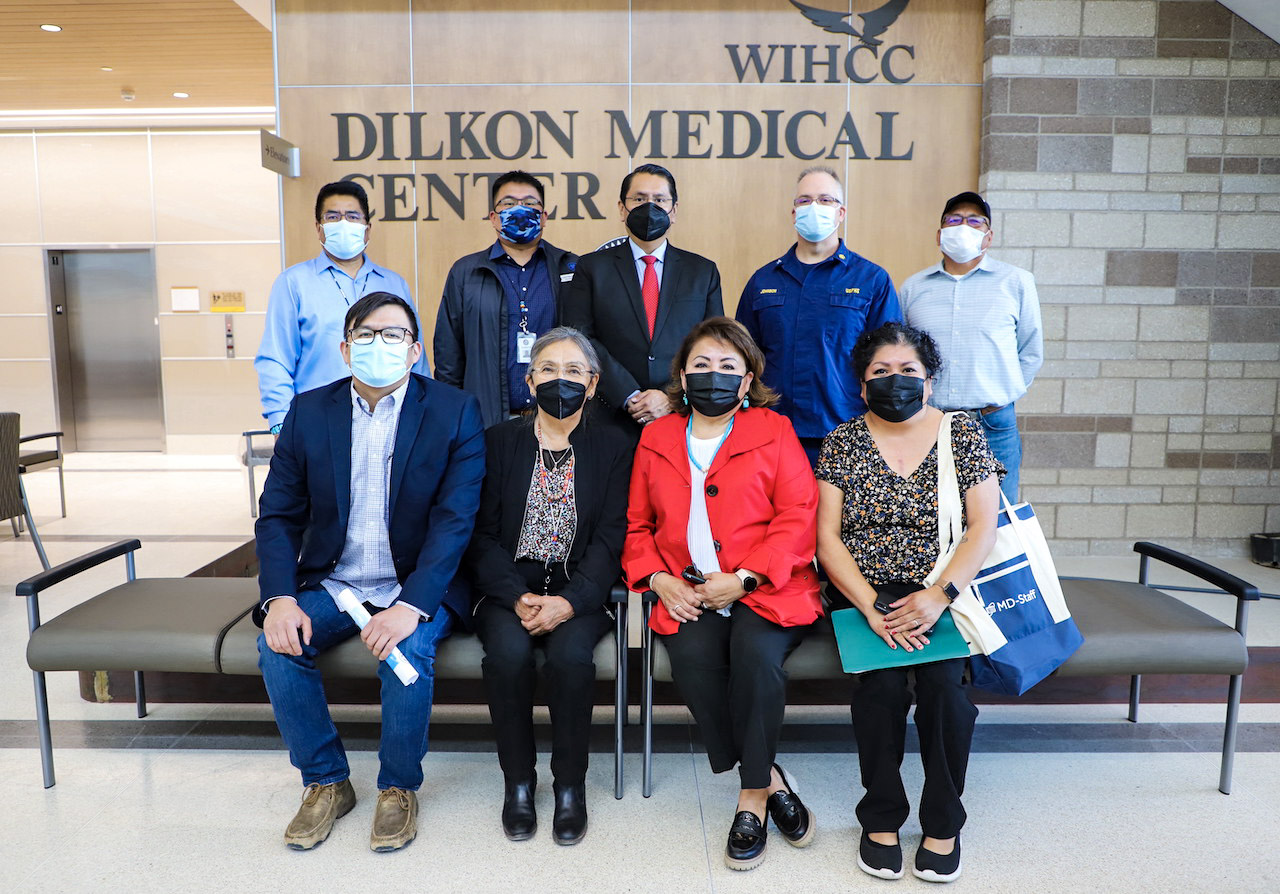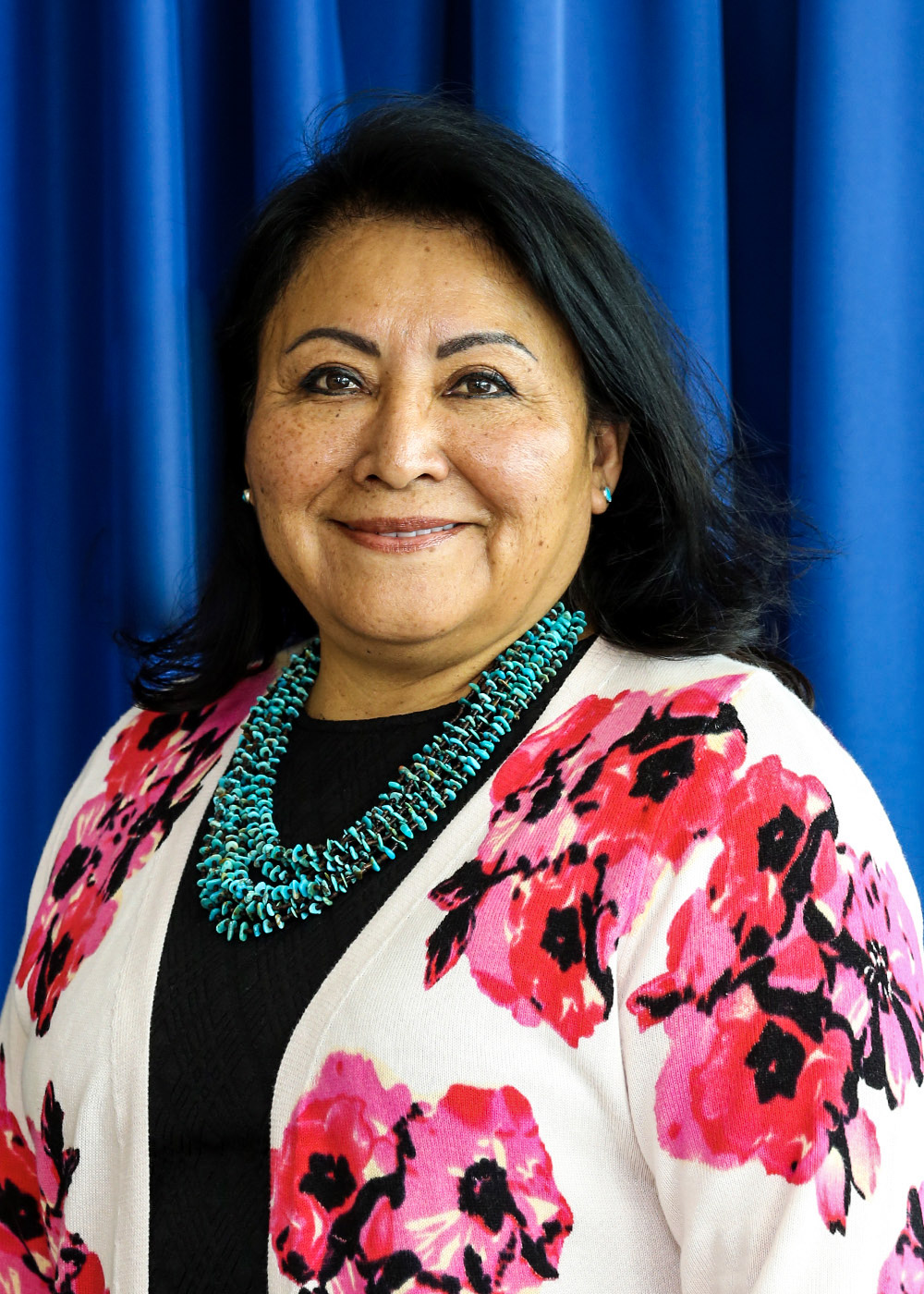Indianz.Com > News > Indian Health Service nominee up for confirmation hearing

Indian Health Service nominee up for confirmation hearing
Roselyn Tso, Navajo citizen, facing many challenges amid COVID-19
Tuesday, May 24, 2022
Indianz.Com
• ROSELYN TSO WRITTEN STATEMENT: PDF
WASHINGTON, D.C. —
With the Biden administration sounding the alarm on health worker burnout, the president’s pick to lead the Indian Health Service is up for a long-awaited confirmation hearing on Capitol Hill.
Roselyn Tso, a citizen of the Navajo Nation, has worked for the IHS since 1984. She currently heads up the Navajo Area of the IHS, which provides health care to more than 240,000 people on the largest reservation in the United States.
Pending confirmation by the U.S. Senate, Tso is set to take on the biggest leadership role at the IHS. She has been nominated to serve as director of the federal agency responsible for delivering services to more than 2.5 million American Indians and Alaska Natives across the nation.
“As the current head of the Navajo Area IHS, she has done a remarkable job working together with the Navajo Nation to mitigate the COVID-19 pandemic,” President Jonathan Nez said in his State of the Navajo Nation address last month. “She has exceptional experience and commitment that will serve all tribal nations well.”
Tso, whose nomination was announced by the White House on March 9, is going before the Senate Committee on Indian Affairs on Wednesday afternoon. The confirmation hearing is a significant step in the process toward being confirmed as director of the IHS.
“The Indian Health Service Director plays a critical role in raising the health status of Native peoples and upholding the federal government’s trust responsibility to Native communities,” Sen. Brian Schatz (D-Hawaii), who serves as chair of the committee, said after Tso was selected by President Joe Biden.
“I am committed to seeking Indian Country’s input on Ms. Tso’s nomination as the committee carefully considers her qualifications,” said Schatz.
Some of Indian Country’s biggest concerns include adequate, stable and predictable funding, since the IHS annual budget has not kept up with rising costs, inflation and needs on the ground. But tribes and their advocates are seeing progress with the Biden administration’s historic request of $9.3 billion for the agency in fiscal year 2023, which represents a 37 percent increase from current levels.
“The president is showing tribes, through the priorities and vision he put in his 2023 budget for Indian health, that he is not just listening to tribes, he is hearing us!” Chairman William Smith of the National Indian Health Board said of Biden’s proposal, which was released in late March. Smith serves as vice president of the Valdez Native Tribe in Alaska.

Additionally, higher funding levels will enable the IHS to bring on more employees at a time when health workers are feeling stressed by the ongoing COVID-19 pandemic, which has affected American Indians and Alaska Natives at disproportionate rates. The Biden administration has been highlighting what it calls burnout as part a national tour that stopped at the Phoenix Indian Medical Center in Arizona on Tuesday. With a patient base of more than 156,000 American Indians and Alaska Natives, the facility is the largest in the Phoenix Area of the IHS. The region has suffered from some of the highest rates of COVID-19, according to coronavirus data provided by the IHS. As of May 22, for instance, the Phoenix Area has the third highest rate of COVID-19 cases since the onset of the pandemic more than two years ago. The region currently has the third highest rate of 7-day positive cases, highlighting how the coronavirus continues to impact tribes and their citizens at alarming levels. According to Dr. Vivek Murthy, the U.S. Surgeon General, COVID-19 is also taking a toll on health workers, like those at the IHS. He met with employees from the Phoenix Indian Medical Center to learn more about their struggles in providing care amid the pandemic. “COVID-19 has been a uniquely traumatic experience for the health workforce and for their families, pushing them past their breaking point,” Murthy said on Monday as he released a report outlining the crisis. “Now, we owe them a debt of gratitude and action. And if we fail to act, we will place our nation’s health at risk.” Lack of funding and workforce shortages are among the many issues facing employees at IHS and tribal facilities, according to the report, titled “Surgeon General’s Advisory Addressing Health Worker Burnout.” COVID-19 has further exacerbated safe water, food insecurity, and housing insecurity challenges for these kinds of workers, the report said, citing a recently concluded study by the Washington State Tribal Food Project. Besides Murthy, the roundtable with IHS employees included Dr. Rachel Levine, who serves as the Assistant Secretary for Health at the Department of Health and Human Services, and Dr. Loretta Christensen, a citizen of the Navajo Nation who serves as Chief Medical Officer of the IHS. The IHS has gone without a permanent director for six of the past seven years. The most recent Senate-confirmed nominee was Michael Weahkee, a citizen of the Pueblo of Zuni who was on the job for barely nine months before being asked to step down by President Biden. Weahkee complied with the request on January 20, 2021, which was Biden’s first day in office. It took Biden more than a year to announce Tso as his pick to lead the IHS, following widespread speculation about the lack of a permanent director. Tso’s confirmation hearing takes place at 2:30pm Eastern on Wednesday. A webcast will be available at indian.senate.gov.NEW: Today, I released a Surgeon General’s Advisory calling the nation to address a growing threat to our individual and collective health: health worker burnout. Health workers have long had our back—it’s time for us to have theirs. https://t.co/2st5fl9j3A 1/6 pic.twitter.com/PskcySz0DS
— Dr. Vivek Murthy, U.S. Surgeon General (@Surgeon_General) May 23, 2022
Senate Committee on Indian Affairs Notice
Nomination Hearing to consider Roselyn Tso to be Director of the Indian Health Service, Department of Health and Human Services (May 25, 2022)
Related Stories
Search
Filed Under
Tags
More Headlines
Native America Calling: Tribes vie for better access to traditional plants
Senate committee schedules confirmation hearing for Interior nominee
Fact Sheet: Department of Health and Human Services to undergo ‘dramatic restructuring’
Press Release: Department of Health and Human Services to undergo ‘dramatic restructuring’
Native America Calling: The new Social Security reality for Native elders
Montana Free Press: Hip-hop artist Foreshadow celebrates latest release
Cronkite News: Bill creates alert system for missing and murdered relatives
Bureau of Indian Affairs approves HEARTH Act regulations for Mohegan Tribe
House Subcommittee on Indian and Insular Affairs sets field hearing for self-determination anniversary
Native America Calling: Sometimes, COVID doesn’t go away
Native America Calling: The changing landscape for subsistence hunting and fishing
Press Release: AIHEC ‘deeply concerned’ about closure of Department of Education
Press Release: Oklahoma Indian Gaming Association weighs in on sports betting legislation
Press Release: Sen. Mike Rounds (R-South Dakota) calls for commission on crime in Indian Country
Press Release: Sen. Schatz (D-Hawaii) criticizes closure of Department of Education
More Headlines
Senate committee schedules confirmation hearing for Interior nominee
Fact Sheet: Department of Health and Human Services to undergo ‘dramatic restructuring’
Press Release: Department of Health and Human Services to undergo ‘dramatic restructuring’
Native America Calling: The new Social Security reality for Native elders
Montana Free Press: Hip-hop artist Foreshadow celebrates latest release
Cronkite News: Bill creates alert system for missing and murdered relatives
Bureau of Indian Affairs approves HEARTH Act regulations for Mohegan Tribe
House Subcommittee on Indian and Insular Affairs sets field hearing for self-determination anniversary
Native America Calling: Sometimes, COVID doesn’t go away
Native America Calling: The changing landscape for subsistence hunting and fishing
Press Release: AIHEC ‘deeply concerned’ about closure of Department of Education
Press Release: Oklahoma Indian Gaming Association weighs in on sports betting legislation
Press Release: Sen. Mike Rounds (R-South Dakota) calls for commission on crime in Indian Country
Press Release: Sen. Schatz (D-Hawaii) criticizes closure of Department of Education
More Headlines
